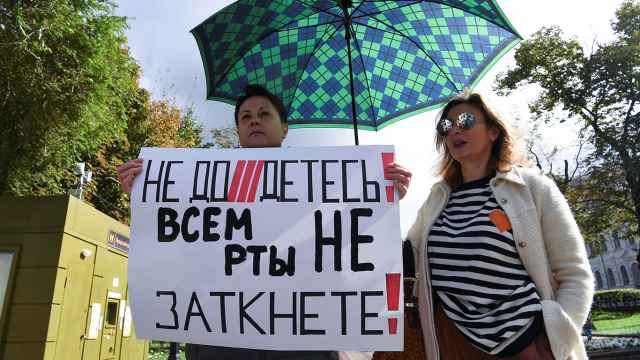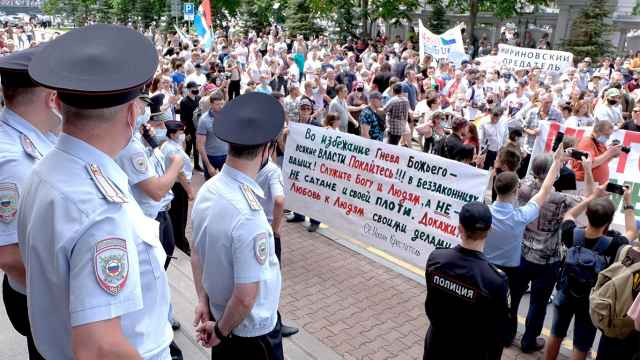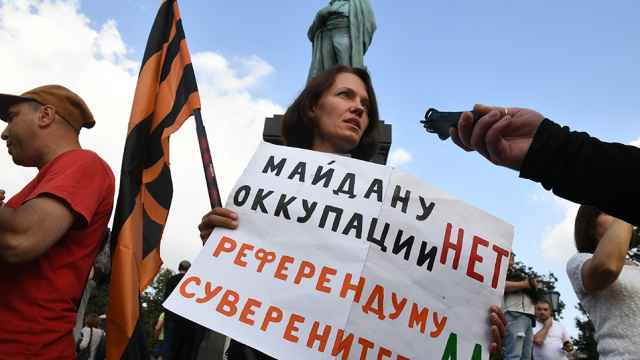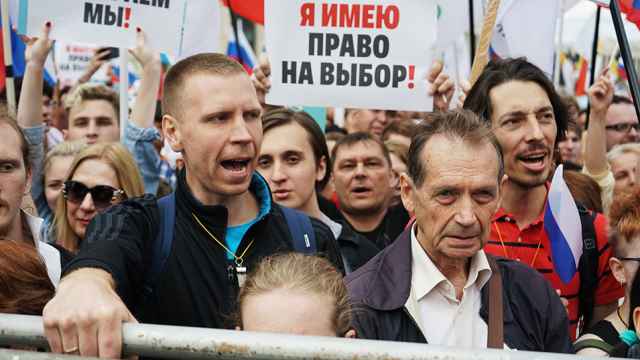Russians are less likely to expect new protests than they were earlier this year as the country's opposition accuses the authorities of cracking down on challengers ahead of key elections, according to an independent survey published Tuesday.
The dip comes as several opposition figures have been jailed or fled Russia in the months since Kremlin critic Alexei Navalny was jailed upon his January return to Moscow. They claim the Kremlin is stepping up an intimidation campaign against dissenters as it seeks to maintain a pro-Putin supermajority in Russia’s lower house of parliament this September, a claim the Kremlin denies.
According to the Levada Center pollster, 28% of Russian respondents said they expect new political protests while 30% anticipated economic protests to erupt. In late January and early February, these expectations were much higher at 45% and 43%, respectively.
Respondents' willingness to attend protests rose slightly with 16% saying they'd rally for political demands and 21% for economic reasons, Levada said.
Respondents' age and primary source of news, as well as approval for President Vladimir Putin’s job, played key roles in their protest mood.
Less than 20% of those who consume state-run television said they would be willing to take to the streets versus more than 20% of social media news consumers who said the same.
Young respondents aged 18-24 expressed the highest willingness to attend both types of protests at more than 20%, compared with less than 20% for those 55 and older.
The widest gap is seen between Putin supporters — of whom only 7% and 12% said they would be willing to attend political and economic protests — and his critics, of whom 35% and 38% voiced their readiness.
Levada conducted the in-person survey among 1,600 respondents in 50 Russian regions between May 20-26.
A Message from The Moscow Times:
Dear readers,
We are facing unprecedented challenges. Russia's Prosecutor General's Office has designated The Moscow Times as an "undesirable" organization, criminalizing our work and putting our staff at risk of prosecution. This follows our earlier unjust labeling as a "foreign agent."
These actions are direct attempts to silence independent journalism in Russia. The authorities claim our work "discredits the decisions of the Russian leadership." We see things differently: we strive to provide accurate, unbiased reporting on Russia.
We, the journalists of The Moscow Times, refuse to be silenced. But to continue our work, we need your help.
Your support, no matter how small, makes a world of difference. If you can, please support us monthly starting from just $2. It's quick to set up, and every contribution makes a significant impact.
By supporting The Moscow Times, you're defending open, independent journalism in the face of repression. Thank you for standing with us.
Remind me later.






